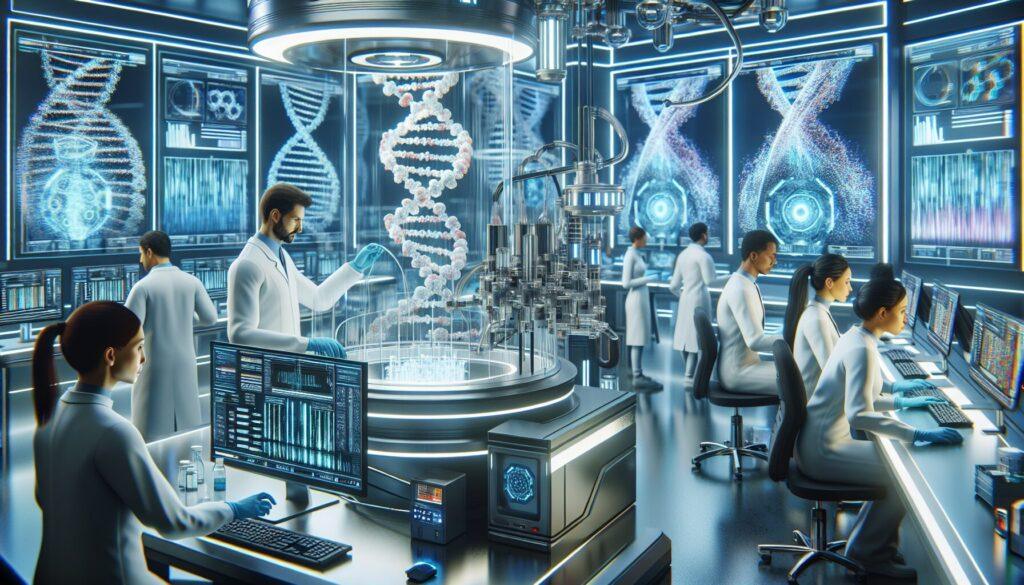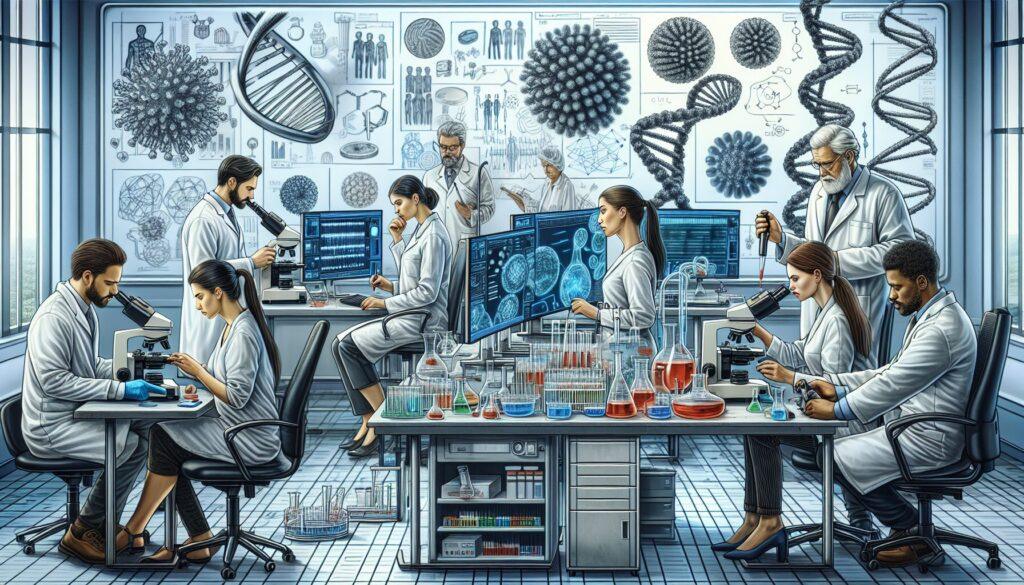What is gene therapy?
Gene therapy is a revolutionary medical technique that involves modifying the genetic material within a person’s cells to treat or prevent disease. By directly altering the DNA or RNA, gene therapy has the potential to rectify the underlying genetic causes of a condition, rather than merely treating the symptoms.
This approach can lead to more targeted and long-lasting interventions, with the possibility of completely curing genetic disorders that were once thought to be incurable.
Hey there! Have you ever been puzzled about what a gene remedy is all about? Imagine having the facility to deal with and even remedy ailments by altering our very DNA. Sounds like something out of a sci-fi film, proper? But it is actual, and it is occurring now!
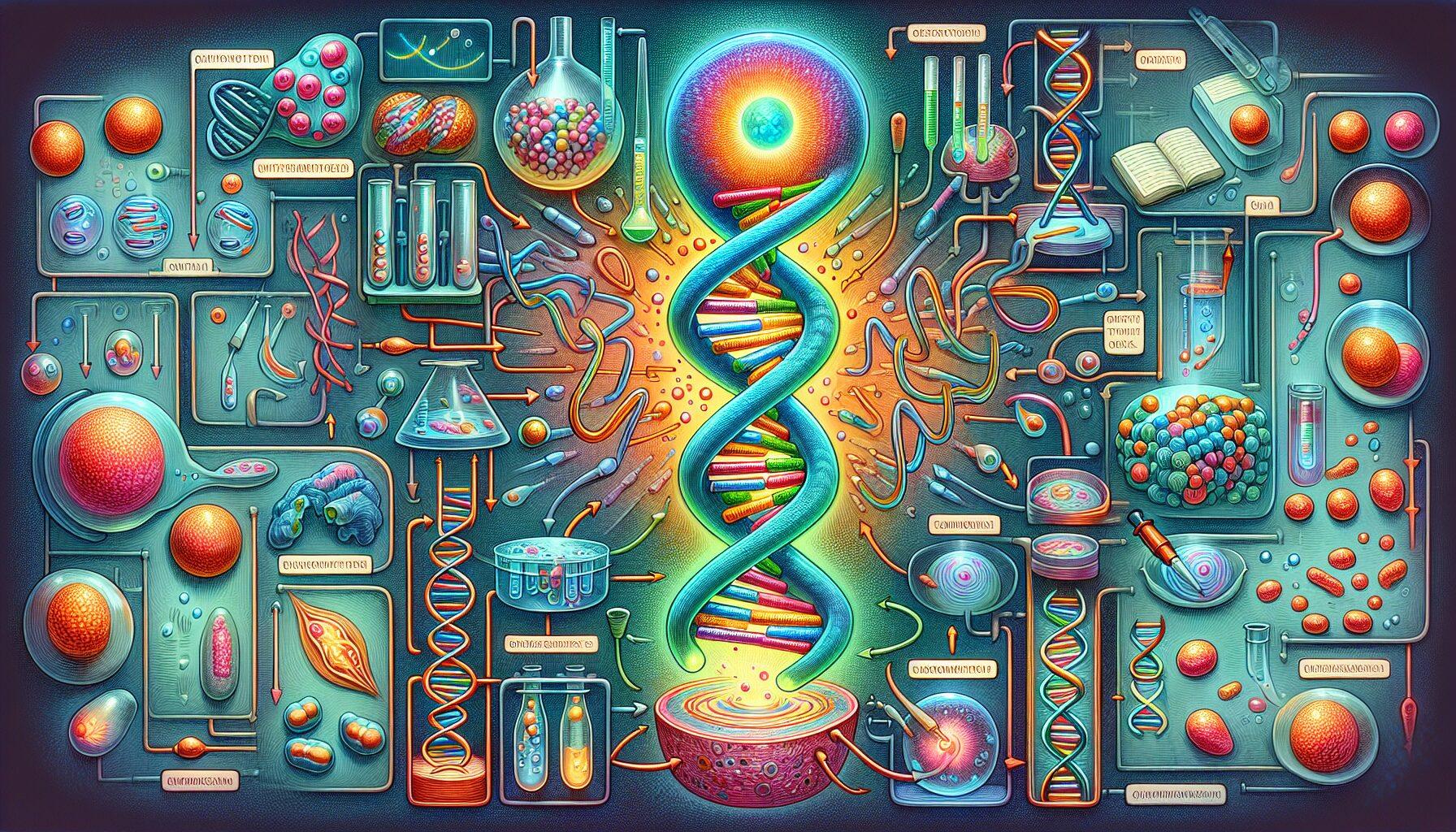
Absolutely! Gene therapy is like the ultimate personalization in medicine – it’s all about tailoring treatments to the individual’s genetic makeup. This cutting-edge approach allows scientists to target specific genes that are causing trouble and fix them, almost like editing a typo in a document.
By doing so, they can potentially stop diseases in their tracks or prevent them before they even start. It’s a game-changer for conditions that we once thought had no hope, and it’s transforming lives one gene at a time!
Gene therapy is a cutting-edge medical approach that includes modifying genes to deal with or stop illness. Think of it as giving your physique’s genetic code just a little tune-up to work higher or to combat sicknesses. This method is usually a game-changer for circumstances that have been thought of as untreatable.
How Does Gene Therapy Work?
Gene therapy operates by introducing genetic material into cells to compensate for abnormal genes or to make a beneficial protein. If a mutated gene causes a necessary protein to be faulty or missing, gene therapy may be able to introduce a normal copy of the gene to restore the function of the protein.
This is usually achieved using a vector, typically a virus that has been genetically altered to carry human DNA, to deliver the therapeutic gene to the patient’s target cells. Once the gene is inside, the cells can use the genetic instructions to start producing the protein they need, potentially leading to a management or even cure of the disease.
Let’s break it down: Our bodies are made up of billions of cells, each containing DNA that acts as a guide for the way our cells ought to operate. Sometimes, errors in this guide can result in ailments. Generate remedy goals to repair these errors by:
1: Identifying the specific genetic mutations that are causing the disease. By using AI algorithms to analyze vast datasets of genetic information, scientists can pinpoint the exact changes in DNA that lead to the malfunctioning of cells. This precision allows for a targeted approach to treatment, ensuring that therapies are tailored to the individual’s unique genetic makeup.
Once these mutations are identified, the next steps involve developing strategies to correct or mitigate the effects of these errors, paving the way for personalized medicine that is both more effective and potentially less invasive.
AI’s role in this process is crucial, as it can process and interpret complex genetic data at speeds and accuracies far beyond human capabilities, leading to faster diagnoses and more timely interventions.Replacing defective genes with wholesome ones.
2: The transformative power of AI in personalization extends beyond genetic interventions to the realm of everyday healthcare and lifestyle choices. By analyzing vast datasets from electronic health records, wearable devices, and patient-reported outcomes, AI algorithms can tailor health recommendations to the individual’s unique genetic makeup, lifestyle, and environment.
This level of customization ensures that each person receives the most appropriate and effective treatments, dietary suggestions, and exercise plans, significantly improving the likelihood of positive health outcomes and overall well-being.Inactivating problematic genes that might be inflicting bother.
3: The integration of AI personalization in healthcare extends beyond treatment into preventive measures. By analyzing vast amounts of personal health data, AI algorithms can identify patterns and predict potential health risks before they manifest into serious conditions.
This proactive approach allows for early intervention strategies, which can be tailored to the individual’s genetic makeup, lifestyle, and environmental factors, thereby reducing the burden on healthcare systems and improving quality of life for patients.Introducing new genes to help combat an illness.
Here’s an easy analogy: Just as a master gardener selects and cultivates plants according to the unique conditions of their environment, AI personalization operates by curating experiences and interventions that are specifically suited to an individual’s needs.
It takes into account the myriad of variables that make up a person’s life—ranging from their daily habits to their social determinants of health—and crafts a tailored approach to wellness.
This level of customization ensures that each person receives the most effective form of treatment, much like how the right soil and sunlight can make a particular plant thrive. Think about how your physique is like a PC with a bug in its software program. Gene therapy is like putting in a patch to repair that bug!
Real-World Example: A Life-Changing Treatment
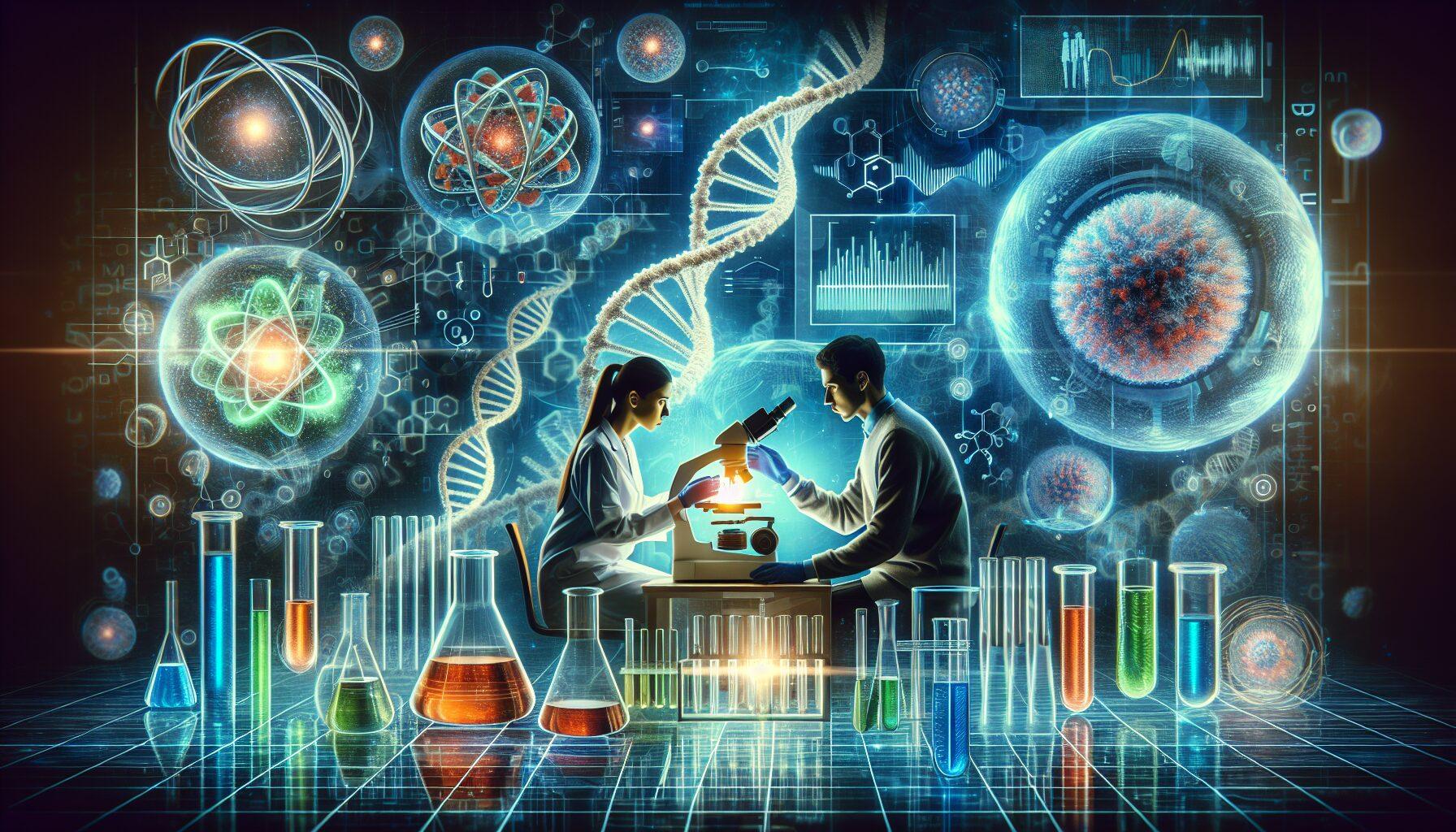
Continuing from the previous thought, it’s essential to recognize that gene therapy isn’t just a theoretical possibility—it’s a reality changing lives today. For instance, patients with certain genetic disorders, who once faced bleak prognoses, now have renewed hope thanks to this cutting-edge approach.
By precisely targeting and repairing the faulty genes, doctors can correct the underlying cause of these conditions, rather than merely treating the symptoms, ushering in a new era of personalized medicine that is tailored to each individual’s unique genetic makeup.
Meet Emma, a young lady recognized with an uncommon genetic dysfunction known as spinal muscular atrophy (SMA). This situation impacts her muscle mass, making it tough for her to maneuver.
Fortunately, the advent of AI personalization in healthcare has brought hope to patients like Emma. By leveraging sophisticated algorithms that analyze vast amounts of genetic data, doctors can now create highly customized treatment plans that address the specific nuances of Emma’s condition.
This approach not only optimizes the effectiveness of her treatment but also minimizes potential side effects, enhancing her quality of life and offering a brighter outlook for her future.
Thanks to gene therapy, Emma obtained a remedy that launched a wholesome copy of the defective gene liable for her SMA. Today, she’s in a position to transfer extra freely and luxuriate in actions like taking part in them together with her associates. Isn’t that tremendous?
Why is gene therapy important?
Gene therapy represents a monumental leap in medical science, offering hope where once there was none. By targeting the root cause of genetic disorders, it can provide transformative treatments for conditions that were previously considered incurable.
This innovative approach has the potential to not only improve the quality of life for individuals like Emma but also to reduce the long-term healthcare costs associated with managing chronic genetic conditions. As we continue to refine these techniques, the possibilities for healing and personalization in medicine seem boundless.
Gene remedies give hope to sufferers with genetic issues, cancers, and even some viral infections. It’s like having a brand-new instrument within the medical toolkit that targets the basic reason behind ailments rather than simply managing signs. This can result in simpler and longer-lasting therapies.
Tips for Understanding Gene Therapy:
🟢 Tip Box: Think of genes like recipes in a cookbook. If one recipe has an error, it may not end up proper. Gene remedy is like correcting that recipe so the dish (or your physique) seems complete!
The Future of Gene Therapy
As we gaze into the horizon of medical advancements, gene therapy stands as a beacon of hope for countless individuals. With its potential to tailor treatments to the genetic underpinnings of a person’s condition, it promises a new era of precision medicine.
Researchers are tirelessly working to refine these techniques, ensuring they are not only effective but also accessible, bringing us closer to a future where genetic disorders are no longer a verdict but a manageable aspect of life.
The prospects with gene remedies are huge. Researchers are regularly exploring how this know-how can be utilized to deal with a wider variety of circumstances. However, it is essential to notice that gene remedies remain to be studied and improved. It’s like we’re at the beginning of a thrilling journey, and the vacation spot may change the face of medication.
Interactive Element: How Much Do You Know?
As we delve deeper into the realm of gene therapy, the role of AI personalization becomes increasingly pivotal. By harnessing the power of artificial intelligence, we can tailor gene therapies to the individual genetic makeup of each patient, enhancing the effectiveness and minimizing potential side effects.
This bespoke approach to medicine is not just a futuristic dream—it’s rapidly becoming a reality as AI algorithms learn from vast datasets to predict the best therapeutic strategies for unique genetic profiles. Why not take a look at your information with a fast quiz on gene remedies? You would possibly uncover one new thing!
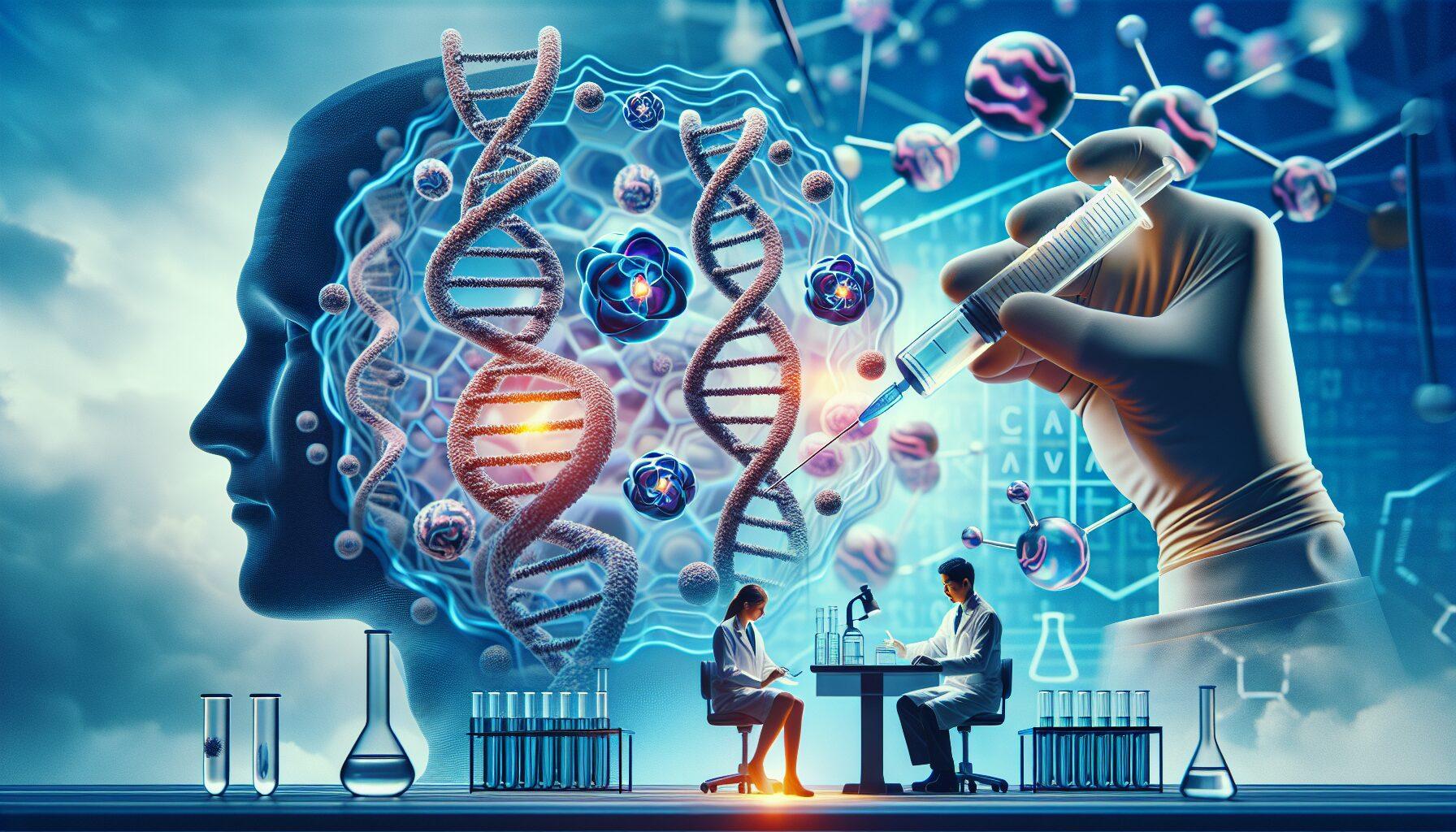
Conclusion
As we continue to delve deeper into the realm of AI personalization, the potential for customized healthcare becomes increasingly tangible. Imagine a world where your medical treatments are tailored not just to your symptoms, but to the very blueprint of your biology.
The convergence of AI with genomics paves the way for a new era of precision medicine, where every individual can hope for a health strategy as unique as their DNA.
Gene therapy is reshaping the panorama of medication, providing new hope and prospects. Whether it’s by way of changing defective genes or introducing new ones, this revolutionary method helps sufferers lead healthier lives. Curious to be taught extra? Dive into associated matters on our website, or try this FDA resource for deeper insights.
Call to Action: Personalized medicine is just the tip of the iceberg when it comes to the potential of AI in healthcare. By leveraging complex algorithms and vast datasets, AI can tailor treatments and wellness plans to the individual’s unique genetic makeup, lifestyle, and health history.
This level of customization not only improves outcomes but also enhances the patient experience by making healthcare more responsive and intuitive. Embrace the future of medicine by exploring how AI personalization is transforming care delivery and patient empowerment.
Join the conversation and share your thoughts on how technology is reshaping our approach to health and wellness. Ready to discover more about how trendy medication is evolving? Discover extra groundbreaking therapies and improvements on our blog in the present day!
As we delve deeper into the realm of AI personalization in healthcare, we’re witnessing a paradigm shift in treatment protocols and patient care strategies. Custom-tailored health plans, powered by sophisticated algorithms, are not just a futuristic dream but a present reality, enhancing the precision of diagnoses and the efficacy of interventions.
By analyzing vast datasets of patient history and current health parameters, AI systems are equipping medical professionals with the tools to deliver care that is not only reactive but also predictive and preventive, heralding a new era of health optimization that is as unique as the individuals it serves.
By staying knowledgeable and curious, you are already taking step one towards embracing the way forward for healthcare. Keep exploring, and who is aware of it? You would possibly simply encourage the subsequent large breakthrough!

